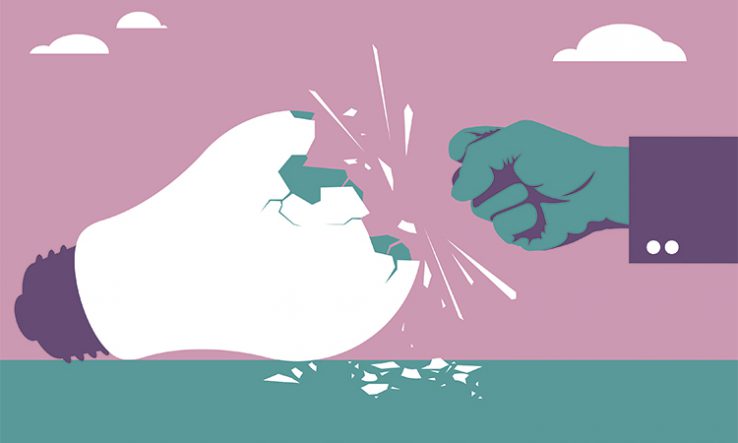
Evidence suggests nations that curb researchers’ liberty pay a price in innovation, says John Whitfield
Freedom gets a lot of lip service. Nearly every country on earth has ratified the UN International Covenant on Economic, Social and Cultural Rights. Among other things, it commits signatories to “respect the freedom indispensable for scientific research and creative activity”.
But on 2 March this year’s update to the Academic Freedom Index reported that, for more than half the world’s population, academic freedom is falling. The AFI, produced by the V-Dem institute in Gothenburg, is based upon assessments from more than 2,000 experts worldwide, resulting in a score ranging from zero to one. It considers factors including teaching, institutional autonomy and freedom of expression.
This year’s update identified 22 countries where academic freedom has fallen in the past decade. There was “a shift toward less academic freedom in the world, with declines in all regions and across all regime types”.
Declines were seen in many major science producers, including established powers such as the US, UK and China, and emerging ones such as India, Brazil and Turkey.
Science gets caught up in debates about academic freedom relatively rarely. Governments may feel they can clamp down on dissent and play with culture war rhetoric, and curb freedoms without harming their technological ambitions. But a recently published preprint suggests they are wrong.
Freedom in freefall
Paul Momtaz of UCLA and his colleagues analysed the relationship between academic freedom and patenting activity. They compared patent production in 157 countries between 1900 and 2015, covering 62.8 million patent applications, with historic changes in the AFI.
They also attempted to control for social and political variables to separate the effect of specifically academic freedoms from freedom more generally.
The researchers found a strong positive link between a nation’s level of academic freedom and both the number of patents it produces and the number of citations those patents receive, an indicator of their quality. They calculated that, worldwide, the fall in freedom of the past decade has resulted in a drop in patenting of between 4.0 per cent and 6.7 per cent.
Reducing academic freedom, the researchers argue, stunts both early stage, pre-commercial R&D and the open exchange of information that helps knowledge spillover into new contexts. “For the past century, nearly all breakthrough patents have come from universities,” says Momtaz.
The finding is particularly interesting against a backdrop of strategic competition in science and innovation between nations and blocs that is more intense than it has been for decades.
The US, China and the EU are each seeking leadership in areas such as AI, semiconductors, quantum technologies and green energy. Each is using a different mix of carrots and sticks to gain an advantage and, in some cases, hobble competitors.
The leaders in cutting-edge technologies, says Momtaz, tend to have shown smaller declines in academic freedom. So perhaps, in terms of innovation, liberalism brings its own rewards, and authoritarianism its own punishment. Even so, there is little room for smugness.
The European University Association’s autonomy scorecard, also published in March, found that universities’ organisational and financial freedom had fallen in 10 European countries since 2017. A major cause of this decline is increasing micromanagement by policymakers who seek to steer research systems towards a particular payoff—often economic or technological. Paradoxically, such interventions may make those very outcomes less likely. Better, says Momtaz, would be to give early career researchers more room to experiment—and fail. Freedom, or the lack of it, is a product of professional structures, as well as political ones.
Complicating matters is the international nature of academia. While political hostilities increase, and technological sovereignty issues rise up, competitor nations’ science systems remain deeply interwoven.
On the one hand, academic collaboration has often been seen as source of soft power for liberal democracies, a means to spread their values. On the other, some fear authoritarian regimes can use international ties to effectively outsource their academic freedom—gaining the benefits of innovation while dodging the chilling effects of their own political repression.
The freedom to think, speak, write and criticise is worth defending for its own sake. But it doesn’t hurt to have other arguments to deploy.
The lesson seems to be that you can have a culture war or be a science superpower, to borrow the UK government’s preferred term, but not at the same time.
John Whitfield is opinion editor at Research Europe
This article also appeared in Research Europe